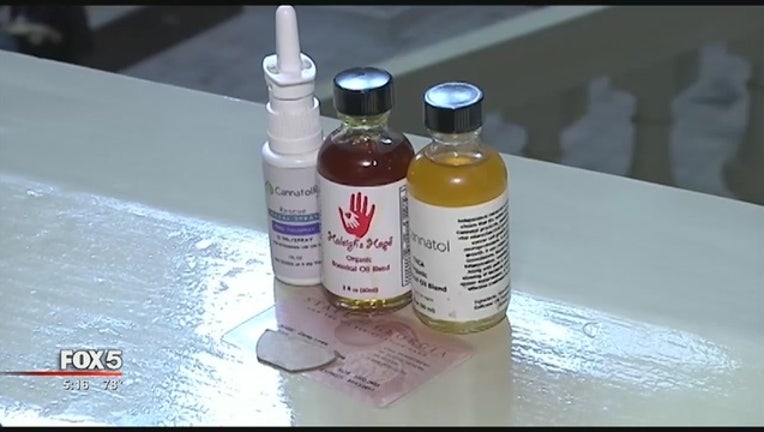Governor signs medical marijuana expansion on final day

ATLANTA (AP) - Georgia Gov. Nathan Deal approved an expansion of the state's medical marijuana program on Tuesday, allowing people being treated for six additional medical conditions to possess cannabis oil.
The new qualifying conditions include autism, AIDS, Tourette's syndrome, and Alzheimer's disease. Patients must register with the state to be eligible and have a doctor's permission.
Many of the additions restrict use to patients who are in severe or end-stage condition. The new law also allows people in a hospice program, regardless of diagnosis, to legally possess the oil that's low in THC, the chemical responsible for the marijuana high.
The measure's sponsor, Rep. Allen Peake, has received national attention for his work on the issue and taking part in a network that gets the oil into patients' hands from other states where it can be sold and manufactured legally. Georgia doesn't allow that. Peake introduced separate legislation this year to allow a small number of medical cannabis manufacturers licensed and regulated by the state but opposition from Deal and law enforcement halted any debate.
"I'm grateful to my colleagues, Speaker David Ralston, and Lieutenant Governor Casey Cagle for their support in getting this bill to Governor Deal's desk," Peake said. "My hope is that in 2018 we can fill the gaping hole that still remains, and provide legal access to medical cannabis oil here in our state with a safe, lab tested product produced within our own borders. The job will not be finished until we accomplish this task."
Tuesday marked the final deadline for the governor to sign or veto lawmakers' proposals. Deal signed more than 50 bills, including the following measures:
- Information on Georgia voters' registration forms would have to match state or federal databases for them to be eligible to cast a ballot. Voting-rights advocates opposed the bill and argue it will disproportionately affect minorities. They also said it undermines the recent settlement of a federal lawsuit against Secretary of State Brian Kemp, challenging a similar matching procedure that Kemp's office implemented in 2010 and used until September.
- Increasing the next governor's salary by 25 percent to $175,000 per year. The change takes effect in 2019. Deal is limited to two terms and leaves office in 2018. He earns $139,339 per year.
- Permitting optometrists to perform injections around the eye, an expansion of state law that only permits ophthalmologists to do so as medical doctors. Deal independently issued an executive order for the Department of Public Health to create guidance on required training for optometrists.
The governor vetoed nine measures on Tuesday, including:
- A bill allowing parents to transfer legal authority for children to a family member or an outside agency for up to a year. Deal said the measure had good intentions of helping children but creates a "parallel and unchecked" system to Georgia's child welfare agency.
- A bill making it easier for parents to opt their kids out of taking state tests. Deal said local school districts already have that ability and he didn't want to add another layer of procedures.
- A bill allowing physicians to authorize physician assistants to prescribe some drugs containing hydrocodone. Deal said the idea runs counter to the state's efforts to fight opioid abuse.

